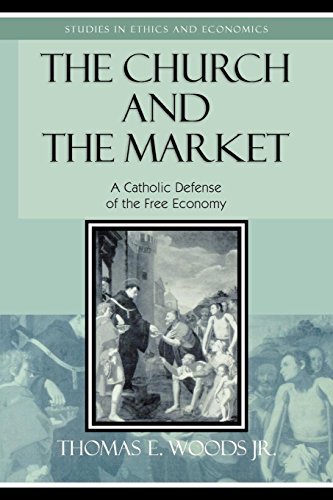Every variety of tyranny rests upon the belief that some persons have a right – or even a duty – to impose their wills upon other people. Tyranny may be fastened upon others by the mere whim of one man, such as a king or dictator under various names. Or tyranny may be imposed upon a minority "for their own good" by a democratically elected majority. But in any case, tyranny is always a denial – or a misunderstanding – of the mandates of an authority or law higher than man himself.
Liberty rests upon the belief that all proper authority for man’s relationships with his fellow men comes from a source higher than man – from the Creator. Liberty decrees that all men – subject and ruler alike – are bound by this higher authority which is above and beyond man-made law; that each person has a relation to his Maker with which no other person, not even the ruler, has any right to interfere. In order to make these conceptions effective for liberty, they must be deeply ingrained in the fundamental values of a people. That is to say, they must be part of the popular religion. There was one people of antiquity for whom this was true, the people who gave us our Old Testament. It was among the ancient Israelites that the conviction took hold and emerged into practice that there was a God of righteousness whose judgments applied even to rulers.
No Royal Inscription
The science of archaeology has unearthed some spectacular ruins in Egypt, in Babylonia, in Crete and in Greece. All over the Middle East, patient researchers have turned up monuments and vainglorious inscriptions carved into rock or pressed into clay at the behest of proud kings. Except in Palestine! There has been nothing brought to light in Palestine comparable to the monuments extolling the vain kings of Egypt.
 The Left, The Right an...
Best Price: $7.33
Buy New $40.00
(as of 07:55 UTC - Details)
The Left, The Right an...
Best Price: $7.33
Buy New $40.00
(as of 07:55 UTC - Details)
An authority states that there is not a single royal inscription from any of the Bible kings. The Prophets saw to that! No boastful king in ancient Israel would have presumed to leave an inscription dedicated to his own glory, much as he felt he deserved such. The Prophets would have quickly put such a king in his place, and popular resentment would have run high against such inflation of human pride.
In Greece and Rome there were men noted as great lawgivers: Lycurgus, Solon, Justinian and others. In other countries there were royal decrees by the thousands. A law would be promulgated with some such words as, "I, the King, command…." In Egypt and in Babylon, even as in Greece and Rome, authority for a law stemmed from a man, the ruler. But in Palestine the situation was different.
In Biblical literature there is not a single law emanating from kings or other secular authority which was recorded and preserved as permanently valid. Nor have archaeologists in Palestine unearthed royal decrees inscribed on clay tablets or graven on rock.
Now, no people live together without conforming to a commonly accepted code, and without having recourse at times to law. The people of ancient Palestine lived under authority, not in a condition of anarchy. If the king was not the source of their law, there must have been another and higher source. There is no doubt as to what their authority was: they looked to God as the source of their law.
 CHURCH & THE MARKET (S...
Best Price: $6.04
Buy New $101.04
(as of 04:20 UTC - Details)
CHURCH & THE MARKET (S...
Best Price: $6.04
Buy New $101.04
(as of 04:20 UTC - Details)
"The Lord is our judge, the Lord is our lawgiver, the Lord is our king" (Is. 33:22). All, or nearly all, of the basic laws of this people were written as though emanating from God Himself. Instead of "I, the King," it was "I, the Lord."
"And ye shall keep my statutes and do them: I am the Lord" (Lev. 20:8). "Thus saith the Lord: Execute ye judgment and righteousness, and deliver the spoiled out of the hand of the oppressor; and do no wrong, do no violence to the stranger, the fatherless, nor the widow" (Jer. 22:3).
This is the system of law, laid down in the Scriptures, expanded and interpreted by human reason, of which the Psalmist said, "[H]is delight is in the law of the Lord; and in his law doth he meditate day and night" (Ps. 1:2).
Nearly every man was learned in this law, and also deeply involved in the religious relation to God in which the law was rooted – and liberty was a precious by-product of these conditions. Establish these conditions – that is, widely held religious values in which God is regarded as the source of authority and justice, superior to any earthly power – and they provide a firm foundation for political liberty.
In these circumstances there is a continuous check to tyranny, should any such attempt to raise its head. Neglect these conditions, and liberty has no roots. It is like a cut flower which has no vitality in itself and does not last beyond the life it derived from the plant. The way is prepared for tyranny.
August 27, 2009





